Real Tips About What Happens If You Short Circuit A Room
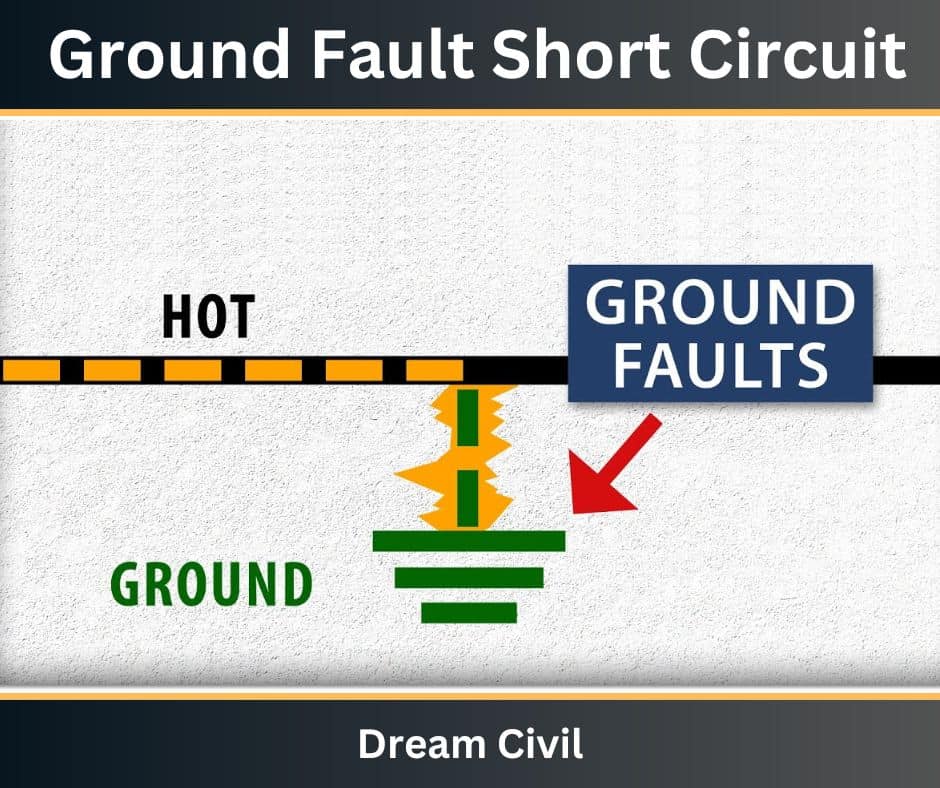
Short Circuit Causes, Types, Signs & Preventive Measures Of
Uh Oh! What Exactly Happens If You Short Circuit a Room?
1. Understanding the Basics of a Short Circuit
Ever wondered what that electrical burning smell is after a power outage? It might just be the aftermath of a short circuit. Think of your home's electrical system like a highway for electrons. Normally, they travel in an orderly fashion along designated routes — wires, specifically — to power your appliances. But a short circuit? That's like a detour sign leading to chaos! It's when electricity decides to take a shortcut, bypassing the intended path and flowing directly back to the source with little to no resistance. Imagine a toddler deciding to sprint across a busy road instead of using the crosswalk. Not good, right?
The main problem? This sudden, unrestricted flow of electricity generates a massive amount of heat very quickly. This heat is what can melt wires, ignite flammable materials, and generally wreak havoc on your electrical system and potentially your house. It's less like a gentle warmth and more like a miniature electrical volcano erupting in your walls. This is why understanding the risks and how to prevent them is paramount for home safety. Think of it as equipping yourself with the knowledge to navigate the electrical highway safely.
The term short circuit is used to describe an abnormal connection between two points in an electrical circuit, where the voltage difference between these points is intended to be zero. In simpler terms, it's when the hot wire (carrying electricity) touches the neutral wire (returning electricity) directly. This creates a low-resistance path, allowing a very high current to flow. This high current is what heats up the wires and causes the problems we discussed earlier. It is similar to creating a water slide with no ending pool to slow you down.
So, the key takeaway here is that a short circuit isn't just a minor inconvenience; it's a potentially dangerous situation that demands respect and understanding. Recognizing the signs and knowing how to react can make all the difference in preventing serious damage or even injury. Treat electricity with caution, and it will continue to power our lives safely and effectively.
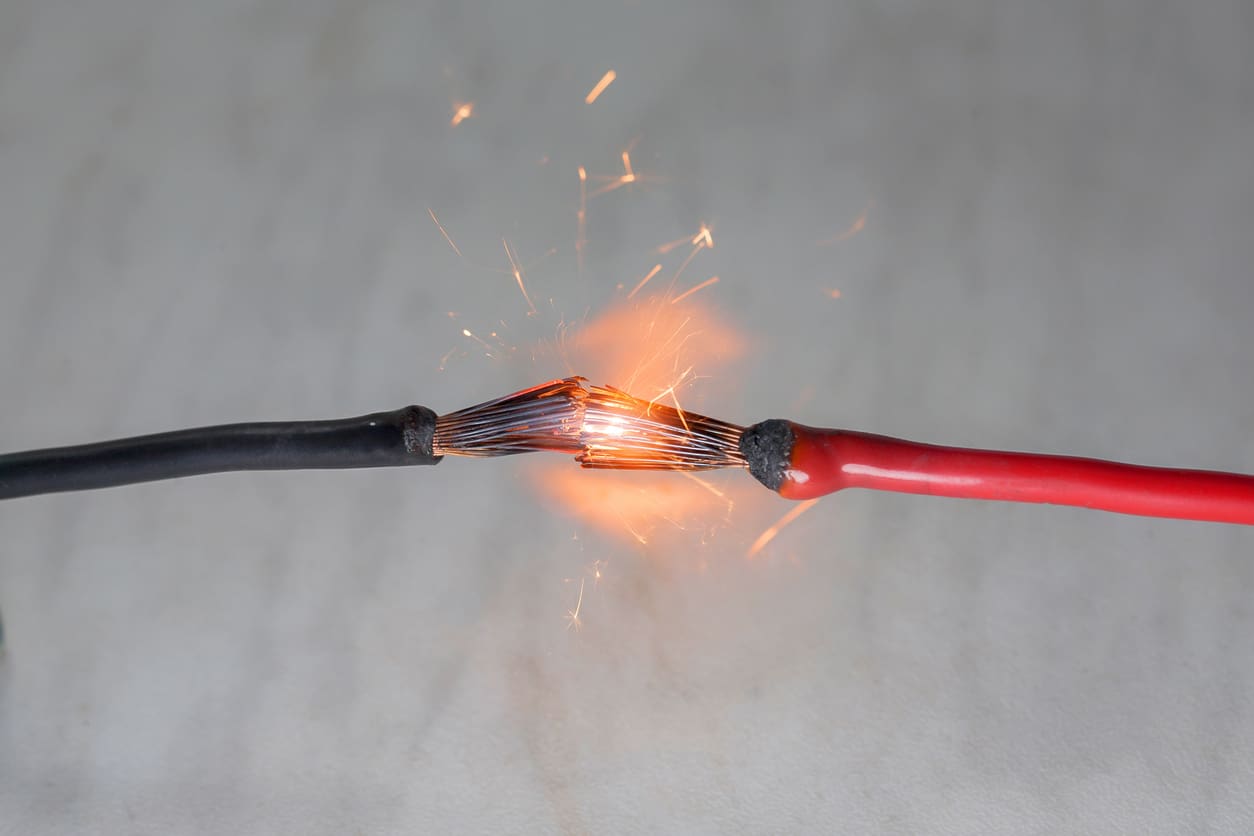
What Is A Short Circuit And Causes One? LicketySplit
The Immediate Consequences
2. Identifying the Signs of a Short Circuit
Okay, so you now know what a short circuit is. But how do you actually know one is happening in your home? Well, it's usually not subtle. Think dramatic, with a side of concerning. The most obvious sign is often a visible spark or a puff of smoke emanating from an outlet, appliance, or even a wall. It might be accompanied by a distinct burning smell, a bit like burnt plastic or rubber. It's definitely not the aroma of a freshly baked pie, that's for sure. The smell itself is a good indication to investigate.
Another common sign is a tripped circuit breaker or a blown fuse. Circuit breakers are designed to protect your electrical system by automatically shutting off the power when they detect an overload or a short circuit. If a breaker trips repeatedly, even after you reset it, it's a strong indication that something is amiss. Don't just keep flipping it back on without investigating further. That's like ignoring a warning light on your car's dashboard — it's probably trying to tell you something important!
Sometimes, the signs are less obvious. Flickering lights, appliances that suddenly stop working, or outlets that feel warm to the touch can also indicate a problem. It's important to pay attention to these subtle clues and investigate any electrical oddities promptly. Ignoring these warning signs could lead to a more serious and potentially dangerous situation. Imagine the electrical system in your home is a body. Warning signs are like the body telling you that something is wrong.
It's essential to act swiftly and cautiously when you suspect a short circuit. The faster you act, the less likely you are to have serious damage. Immediately turn off the circuit breaker that controls the affected area. This will cut off the power supply and prevent further damage. Once the power is off, call a qualified electrician to diagnose and repair the problem. Safety first! This is one area where it's always best to leave it to the pros. Don't be a hero, be safe. Remember, electricity is not your friend if it isn't handled properly.
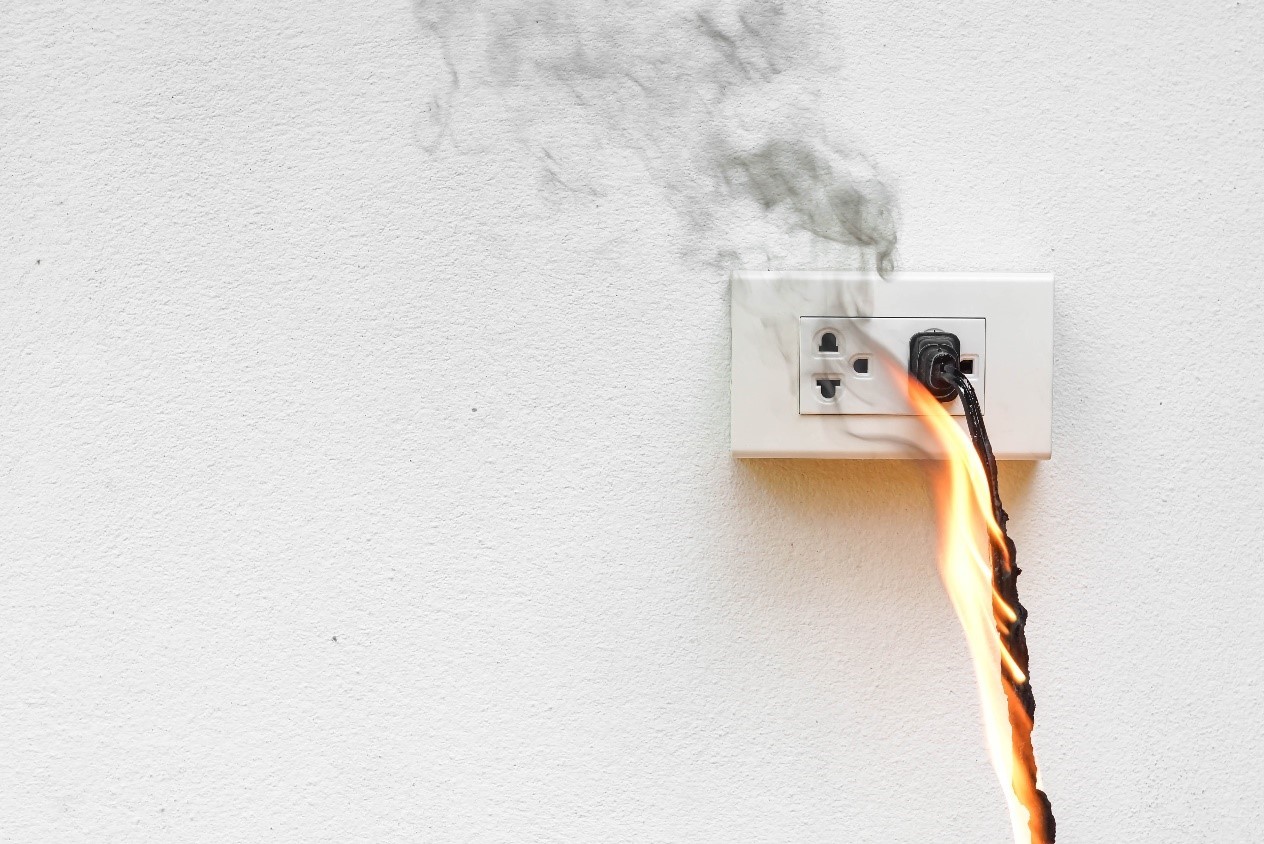
The Ripple Effect
3. Understanding the Long-Term Effects of a Short Circuit
So, you've averted the immediate crisis of sparks and smoke. Great! But the story doesn't necessarily end there. A short circuit can have lasting consequences beyond the initial drama. Think of it as a stone dropped in a pond — the ripples can spread far and wide. One of the most common long-term effects is damage to your home's wiring. The intense heat generated by a short circuit can melt insulation, weaken connections, and even damage the wires themselves. This compromised wiring can become a fire hazard down the road. Electrical fires are one of the most dangerous types of house fires, so you really do want to get ahead of any potential electrical problems.
Furthermore, a short circuit can damage sensitive electronic equipment. Surges of electricity can fry circuit boards, damage components, and render your expensive gadgets useless. That fancy new TV? The short circuit might have just turned it into a very expensive paperweight. This is why surge protectors are so important. Surge protectors can act as a gatekeeper, guarding our electronics.
Another often-overlooked consequence is the risk of electrical shock. Damaged wiring can expose live wires, creating a potential electrocution hazard. Even seemingly minor shocks can be dangerous, especially for individuals with pre-existing heart conditions. Never take electricity for granted.
Finally, repeated short circuits can weaken your home's entire electrical system over time. This can lead to reduced capacity, increased susceptibility to future problems, and potentially even the need for costly repairs. Think of your electrical system like an aging car. Treat it well, and it will serve you for years. Neglect it, and you'll be stuck on the side of the road. Regular inspections and preventative maintenance are key to keeping your electrical system in tip-top shape. Get a professional to inspect your home's electrical system every few years to make sure everything is in good working order.
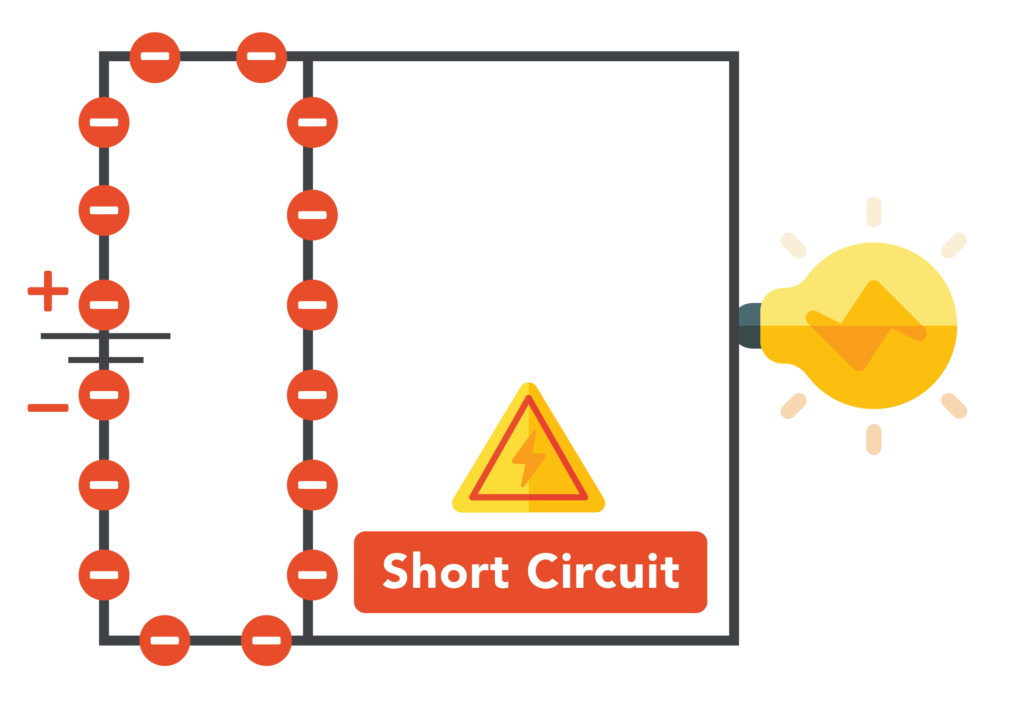
Prevention is Key
4. Simple Steps to Avoid Electrical Disasters
Alright, let's talk about how to avoid all this electrical drama in the first place. Prevention, as they say, is better than cure. And when it comes to short circuits, a little preventative maintenance can go a long way. First and foremost, regularly inspect your electrical cords and plugs. Look for any signs of damage, such as frayed wires, cracked insulation, or loose connections. If you spot any problems, replace the cord or plug immediately. Don't wait for it to become a fire hazard.
Avoid overloading your electrical circuits. Plugging too many appliances into a single outlet or extension cord can draw too much current and cause a short circuit. Spread the load out across multiple circuits, and use power strips with built-in circuit breakers for added protection. Avoid daisy chaining power strips. Daisy chaining power strips is when you plug one power strip into another, which can overload the circuit.
Use the correct wattage light bulbs in your fixtures. Using a bulb with a higher wattage than recommended can overheat the fixture and potentially cause a short circuit. Check the label on the fixture to determine the appropriate wattage. Use the right tool for the job, whether it's a hammer or a lightbulb.
Keep electrical appliances away from water. Water is a conductor of electricity, so it can create a dangerous path for current to flow, leading to a short circuit or even electrocution. Never use electrical appliances near sinks, bathtubs, or showers. If an appliance falls into water, do not touch it. Turn off the circuit breaker that controls the outlet and then retrieve the appliance. It might be best to have a professional come and ensure the system is still safe.
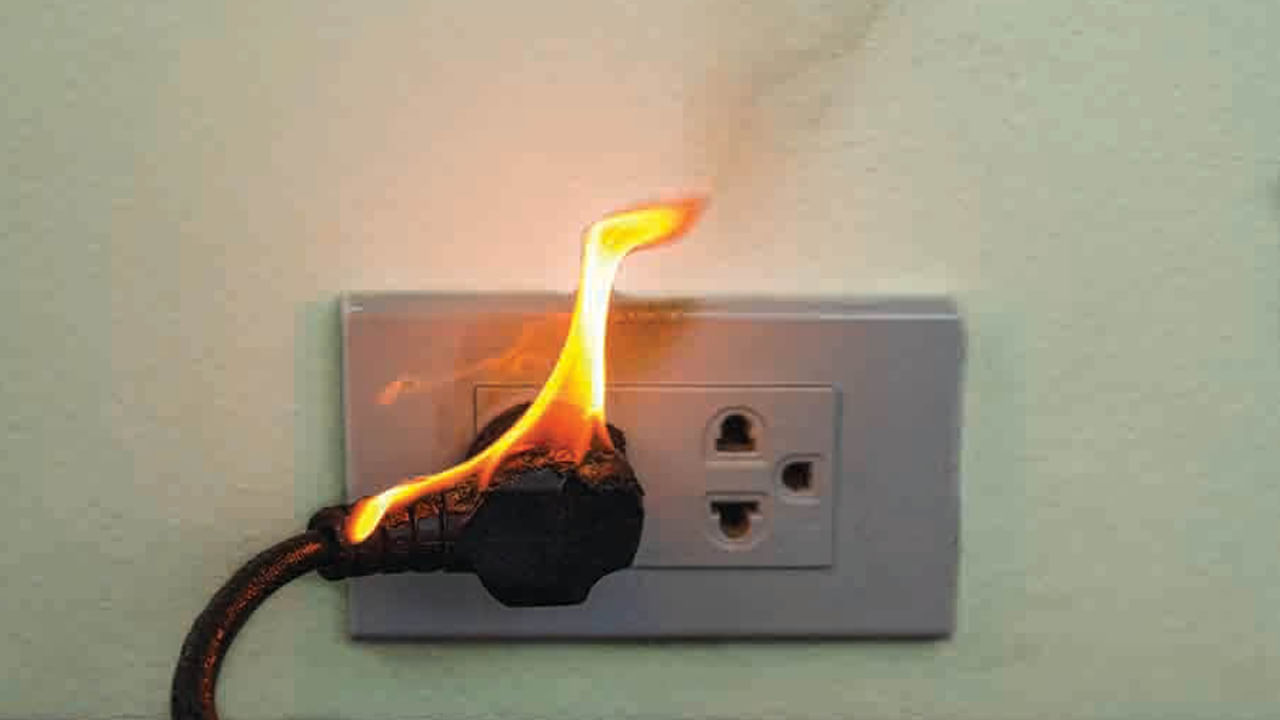
When to Call a Professional
5. Knowing Your Limits with Electrical Work
Let's be honest, some things are best left to the professionals. And electrical work is definitely one of them. Unless you're a qualified electrician with the proper training and experience, attempting to diagnose and repair electrical problems yourself can be risky — even deadly. It's like trying to perform surgery on yourself after watching a few YouTube videos. Not a good idea, right? We all like to save money and be handy, but with electricity it is a different ball game.
If you're experiencing frequent short circuits, flickering lights, or other persistent electrical problems, it's time to call an electrician. They have the tools, knowledge, and experience to accurately diagnose the problem and safely repair it. Trying to troubleshoot electrical issues on your own can lead to misdiagnosis, improper repairs, and even further damage to your electrical system. It can be hard to see if you have the electrical knowledge required to perform some electrical work.
Furthermore, many electrical repairs require permits and inspections to ensure compliance with local codes and regulations. A qualified electrician will be familiar with these requirements and can handle the necessary paperwork. It's not worth risking your safety or facing potential fines by attempting to do electrical work without the proper authorization. It's better to spend a little money and get it done right the first time than to risk further problems or even injury.
When choosing an electrician, be sure to check their credentials and references. Look for someone who is licensed, insured, and experienced in residential electrical work. Don't be afraid to ask questions about their qualifications and their approach to solving your electrical problems. Your safety and the integrity of your home's electrical system are worth the investment. Don't just pick the cheapest option. Choose someone you trust to do the job right.

4 Things To Do In An Electrical Short Circuit
FAQ
6. Your Burning Questions Answered
Let's tackle some frequently asked questions about short circuits to further clarify the topic.
Q: What's the difference between a short circuit and an overload?A: A short circuit is a direct, unintended connection between two wires, creating a low-resistance path for electricity. An overload, on the other hand, occurs when you draw too much current from a circuit, exceeding its capacity. Both can trip a circuit breaker, but the underlying causes are different.
Q: Can a short circuit start a fire even if the circuit breaker trips?A: Yes, it's possible. While circuit breakers are designed to interrupt the flow of electricity in the event of a short circuit, there may be a delay in the tripping process. During this brief period, the excessive heat generated by the short circuit can ignite nearby flammable materials. This is why it's crucial to have working smoke detectors and to take immediate action if you suspect a short circuit. It's also important to make sure that the circuit breaker is working correctly.
Q: Are surge protectors effective in preventing damage from short circuits?A: Surge protectors primarily protect against voltage spikes or surges, not short circuits. They can help protect your electronic equipment from damage caused by power surges resulting from lightning strikes or other electrical disturbances. However, they won't prevent a short circuit from occurring in the first place. A short circuit is caused by an entirely different circumstance.